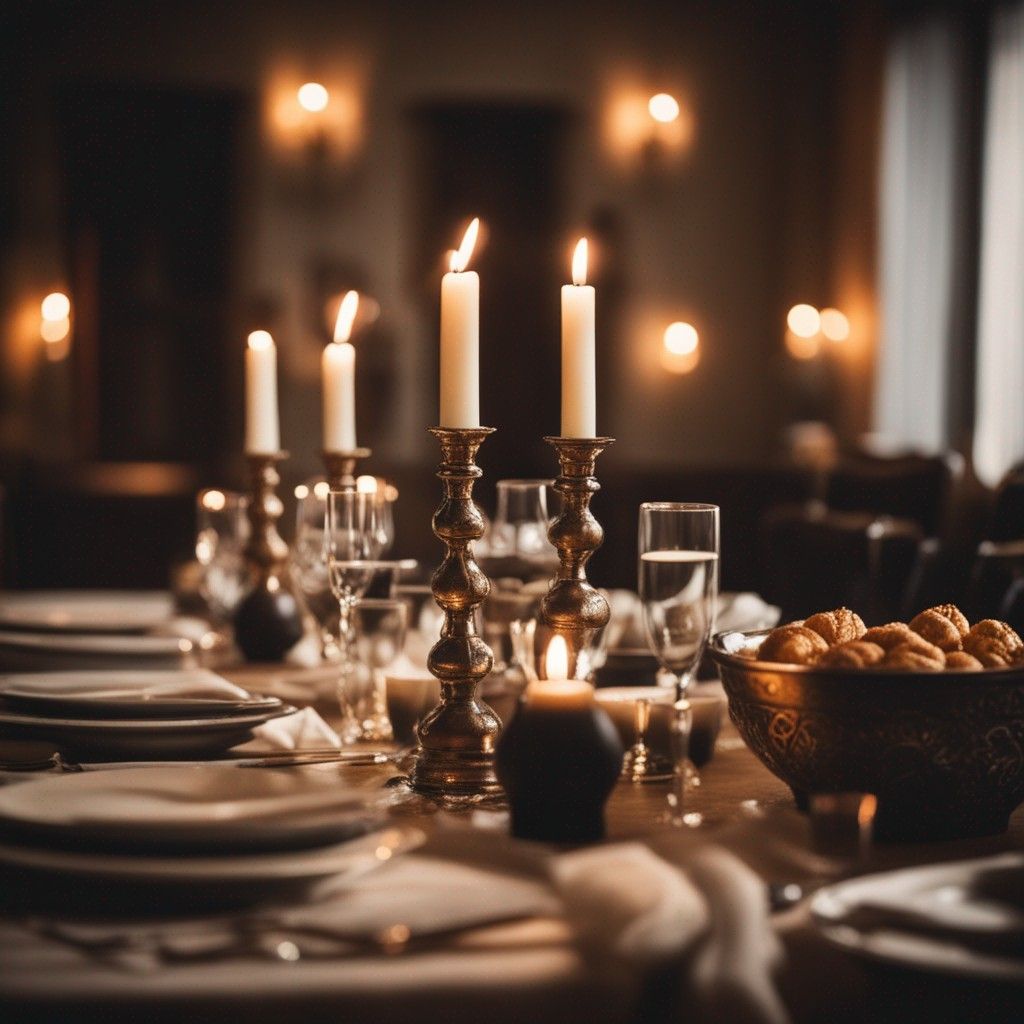Bread
Most of us take Communion or Lord’s Supper with love, fear and devotion. Communion is the fuel and sustenance of the body of Christ, and we should endeavor to understand it at depth. We learn Communion from Christ, himself.
Scripture says that Jesus sat to eat with his students
[H]e took bread, and after saying a blessing broke it and gave it to them, and said, “Take; this is my body.” (Mark 14:22)
Jesus makes a blessing over the bread before breaking it, this is still the Jewish practice and we should take note of several points. The children of Israel were commanded in the bible to bless God after eating.
And you eat and be satisfied, and bless the Lord your God for the good land which He has given you. (Deu. 8:10)
The bible never mentions the idea of making a blessing before eating or drinking, this is a rabbinic commandment that Jesus was particularly careful about. According to Jewish history these blessings were codified into law by none other than Ezra, but we’ve received them from Christ by way of example and every Christian is familiar with the idea of “saying grace” before a meal.
As we’ll see below, there is every reason to believe that the same blessings said everyday by Jews all over the world are those which would have also been said by Christ. Faithful Jews bless for bread like this
Blessed are you Lord our God, King of the Universe, who brings up bread from the earth.
While the blessing seems to be talking about a bountiful harvest, bread does not grow from the earth, wheat does. This blessing is actually understood to speak of the days of Messiah when the curse of the garden will have been removed and daily sustenance will be collected directly from the ground, without toil or labor. This is prefigured in the collection of mana in the wilderness. In the future all things will be outwardly restored to their former state, it will be like life in the garden.
When Christ said that the bread was his “body” we can understand the deeper intention of his words. He would be the bread from the earth, lifted up, broken, and raised up from the earth in a garden. He is the sustenance of World to Come.
Wine

In an Orthodox Christian service, before the Liturgy, three drops of water are poured into a silver cup of wine. Christian tradition teaches that these three drops of water represent the Holy Spirit which has entered the cup. The custom is clearly ancient and many Eastern Jewish communities continue the practice as a matter of law. So, while the bible doesn’t mention Jesus pouring three drops of water into the wine, both Jewish law and Christian custom encourage the practice.
In biblical times, before an execution by the Sanhedrin, the convict was given strong undiluted drink. The statement was made, “To death!” and the convict would drink it. During happy times and on festive occasions the master of ceremony would be given permission to make the blessing over the cup with the communal statement, “To Life!” While the well known salute brings to memory both Fiddled on the Roof and that song by the Black Eyed Peas, the christological implications are profound; what for him was death has become life to us…also…what was once profound intention can become cheap pop culture, if we’re not careful.
During the Last Supper Jesus referenced the wine in a very specific way. He said
I tell you—I will not drink again of this fruit of the vine until that day when I drink it new with you in my Father’s kingdom.
Why didn’t he just say “wine?” There’s a Hebrew word for wine, but instead he called it, “fruit of the vine.” This is an explicit reference to the blessing which is still said by Jews before drinking wine.
Blessed are You our God, King of the universe who creates the fruit of the vine.
While Christians are not obligated to recite these Jewish blessings or put water in their cup before communion, there is no excuse for ignorance about these aspects of the Jewish supper (seudah).
Notice that Christ took a cup before the meal but also took a cup after its conclusion. The bible says
In the same way, after supper He took the cup, saying, “This cup is the new covenant in My blood, which is poured out for you. (Luke 22:20)
Most people do not wait until after a meal has concluded to offer guests a glass of wine, but Jewish people are not most people and this cup which has been elevated by the command of Christ was not an innovation but was rather a familiar and regular practice. Taking a cup after the meal is a practice said to go back even to the time of Abraham. While the cup taken before a meal is called the “Kiddush” meaning “sanctification,” the cup taken after the meal is call the “Kos Yeshuot.” The words mean, “cup of salvations.” Rabbi Judah Monis, the first rabbi of the New England Saints explained this in a lecture given 300 years ago at Harvard. It was his belief that the “kos Yeshuot” or “cup of salvations” spoke to the two great salvations of history, the first and second coming of Christ. In Jewish tradition, it is believed that a great feast will take place in the Kingdom of Messiah. As at all formal meals involving three or more guests, a guest of honor will be chosen to hold the “Cup of Salvations” while reciting the biblically mandated blessings after the meal. Abraham will be given the cup, but will insist that Moses should be honored, Moses will pass the cup to David. But David, realizing his own limitations will turn and place the cup into the hands of Messiah who will make the blessing and then declare,
I lift the Kos Yeshuot (cup of salvations) and cry out in the name of the Lord!
He will ask permission from the guests at his table to begin and all will declare, “To life!” This will usher in the Kingdom of Messiah and the life of the World to Come. As we know, when Christ took the cup at the table with his disciples he said
I tell you, I will not drink again of this fruit of the vine from now on until that day when I drink it anew with you in My Father’s kingdom. (Matt. 26:29)
As mentioned previously, the Jewish people understand this customary “Cup of Salvations” to have its root in the practices of Abraham. The Jewish people recall that it was the practice of Abraham to invite guests to his meal. The tent of Abrahm was positioned at the crossroads of the world and was open on four sides. He would run to greet travelers and strangers and offer them a reviving meal. At the end of the meal, he would give his guest the option to pay for supper by making a blessing to the one who provided it. He would further explain that all had been given from the hand of the true unseen God and Creator of the universe. This small act of devotion to the Creator opened doors for those who would become the spiritual offspring of Abraham and Sarah. When Christ gave the cup to his students, he added a new level of intention to an already ancient rite.
Like Abraham’s tent, the church should be open to all and communion provided to all who wish to eat and bless the Lord. Messiah has given us the cup of salvations and has instructed that we go into all the world and make disciples of all humanity. While the ancient practice incorporated a full meal, Paul reprimanded the Church not to focus on the physical eating and drinking but to elevate the meal as the spiritual giants of Israel had. He said,
Whoever, therefore, eats the bread or drinks the cup of the Lord in an unworthy manner will be guilty concerning the body and blood of the Lord. Let a person examine himself, then, and so eat of the bread and drink of the cup. For anyone who eats and drinks without discerning the body eats and drinks judgment on himself…So then, my brothers, when you come together to eat, wait for one another—if anyone is hungry, let him eat at home. (1 Cor. 11:27).
The Christian practice of taking just a small morsel of bread and a single drink of wine was instituted in response to this reprimand. And while there is nothing stopping a Christian community from taking a full meal together, it should be done with the proper intention.
Paul calls the cup both the “Cup of the Lord” and also the “Cup of Blessing.” This second title is still used within the Jewish community. The cup is often called the “Kos Shel Brachah,” because as we have explained, it is held in the hand while the blessings after eating are recited. He said,
The cup of blessing that we bless over, is it not a participation in the blood of Christ? The bread we break, is it not a participation in the body of Christ?
Because Paul lists the two elements here in reverse order some communities deliver wine before bread but this is a mistake. In calling the cup the “Cup of Blessing” Paul makes reference to the blessings recited while holding the cup which are only recited if one has already eaten bread.
May we all eat this bread and drink this wine together in the Kingdom.

